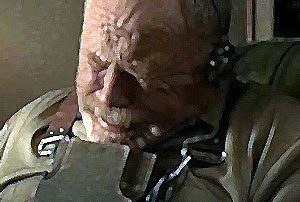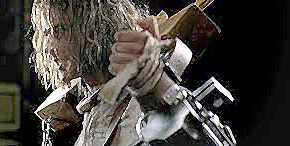HARRISON BERGERON
A short story by Kurt Vonnegut, Jr.

Adapted for audio by Greg R. Barron
A legendary American author...
A cautionary tale...
When I was an aspiring young journalist, one contemporary writer and novelist was always, always at or near the top of my list. He was a hero. I read virtually every word he wrote until his death in 2007.
If only I could write like him.
He became legendary among generations of young Americans who reveled in his humor—and his critiques of American life. He is sometimes referred to as one of the great American writers of the second half of the 20th Century.
He was Kurt Vonnegut Jr.

He was not just funny. He was very funny. Whimsical. And he was serious too.
A New York Times Bestselling author, his satirical novels were enormously popular as commentaries on American life, commentaries that critically examined our culture but always with humor and humility.
They say he thought of himself as a humorist, a humanist and a socialist. Many say he was more just anti-establishment: From the 1960s until his death, he was a strong voice for civil rights, nuclear arms control and preserving the environment.
Many Americans remember him for his ironic novels like Slaughterhouse Five, Cat’s Cradle, The Sirens of Titan and nearly a dozen others.

In his earlier years, he was also a prolific author of short stories as he struggled to provide financial support for his growing family.
Among those short stories was Harrison Bergeron, which is often described as a warning—a cautionary tale of the potential of government overreach in the control of our lives.
Kurt Vonnegut often placed his characters in fanciful, “other-worldly” places and circumstances to help sharpen his ironic and satirical observations about American culture. So, readers and reviewers often thought of his work—broadly speaking—as science fiction.

So it is with Harrison Bergeron. Set in the future, the story describes the American dream of equality for all as something that has finally been achieved—by every means necessary.
Considering that it was written in 1961, it’s remarkable that the debate over how to achieve equality is perhaps more heated today than ever before albeit now it is often cast as a contest between equality and equity. “So it goes”, as Vonnegut would say.
Several film and video adaptations of the story have been done over the years, most taking liberties with the original written version. There are also numerous attempts at readings of the story, audio-book style.

This adaptation is for audio. It hews closely to the story’s original text, augmented by scoring the narration with musical and acoustic enhancement. My hope is to create a new form of the story expressly suited to radio and streaming — offering the listener an entirely new, more enveloping experience.
As always, I encourage you to listen with headphones or high-fidelity speakers and allow the story to play out on the soundstage of your mind’s eye.
Music: “Rites” and “Right Behind You” Kevin MacLeod (incompetech.com) Licensed under Creative Commons: By Attribution 4.0 License http://creativecommons.org/licenses/by/4.0/; “Swan Lake,” Swan Theme, London Philharmonic Orchestra – for non-commercial, educational purposes only.
